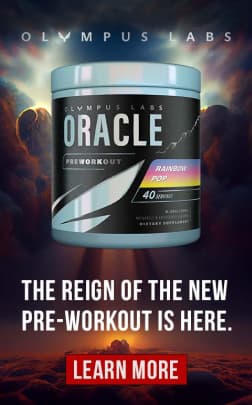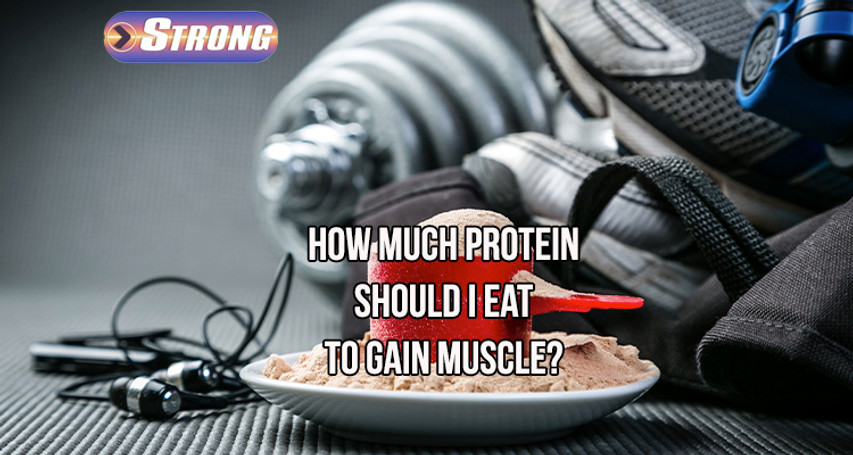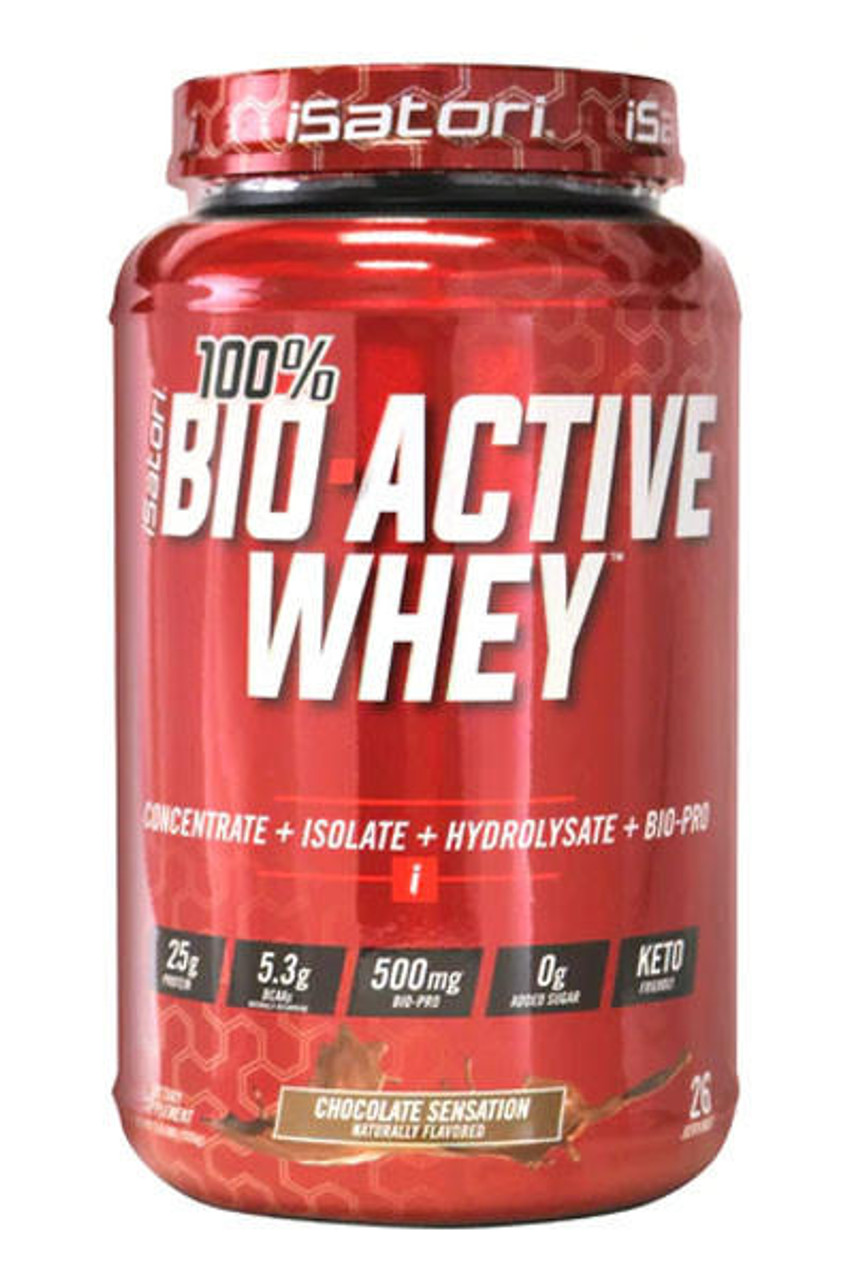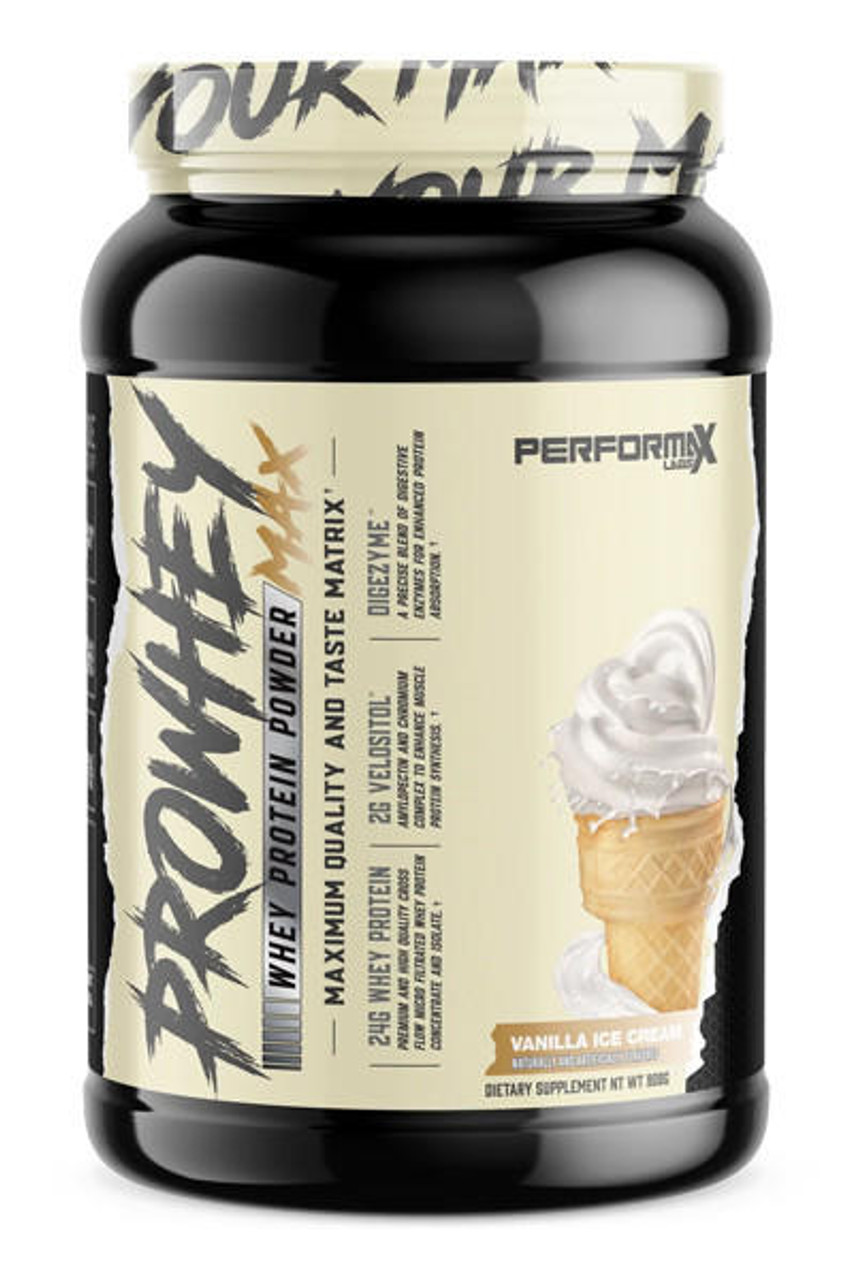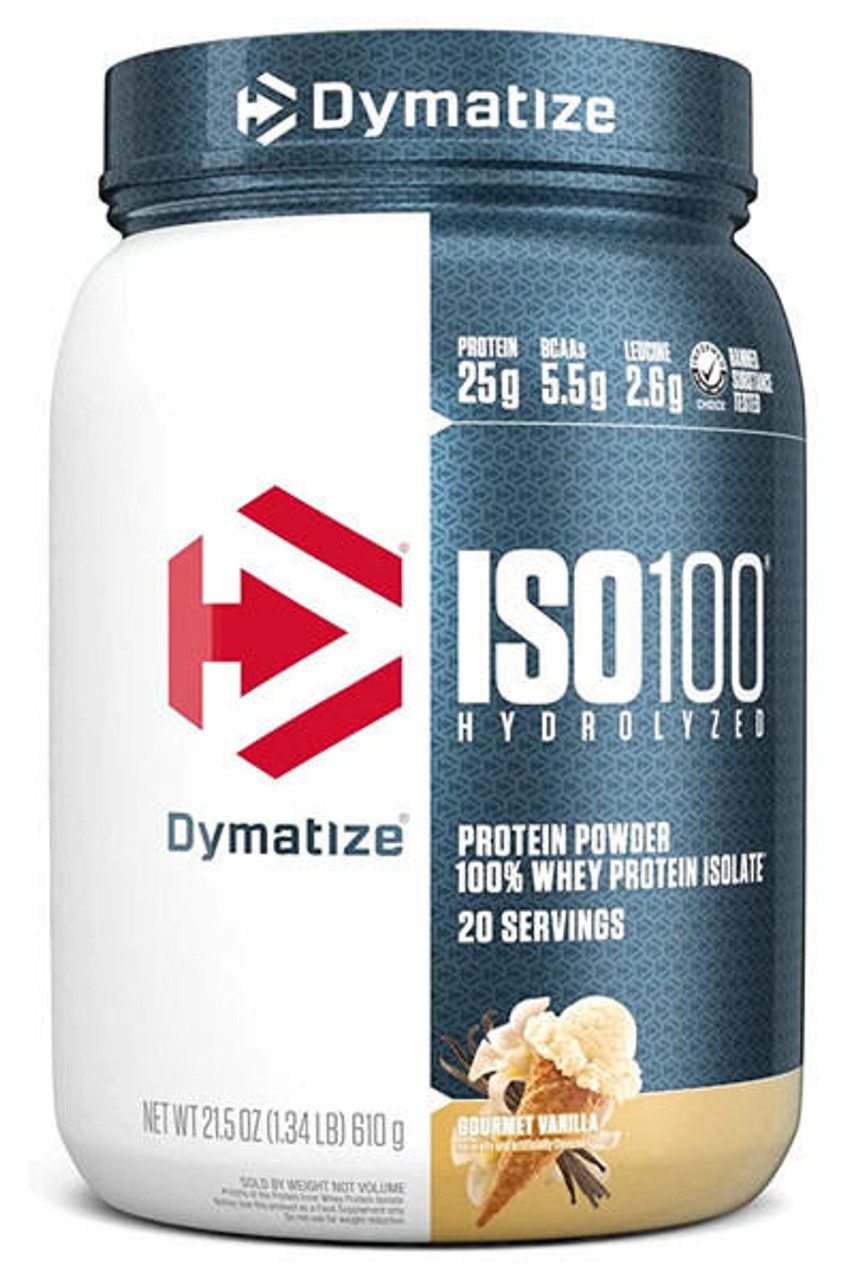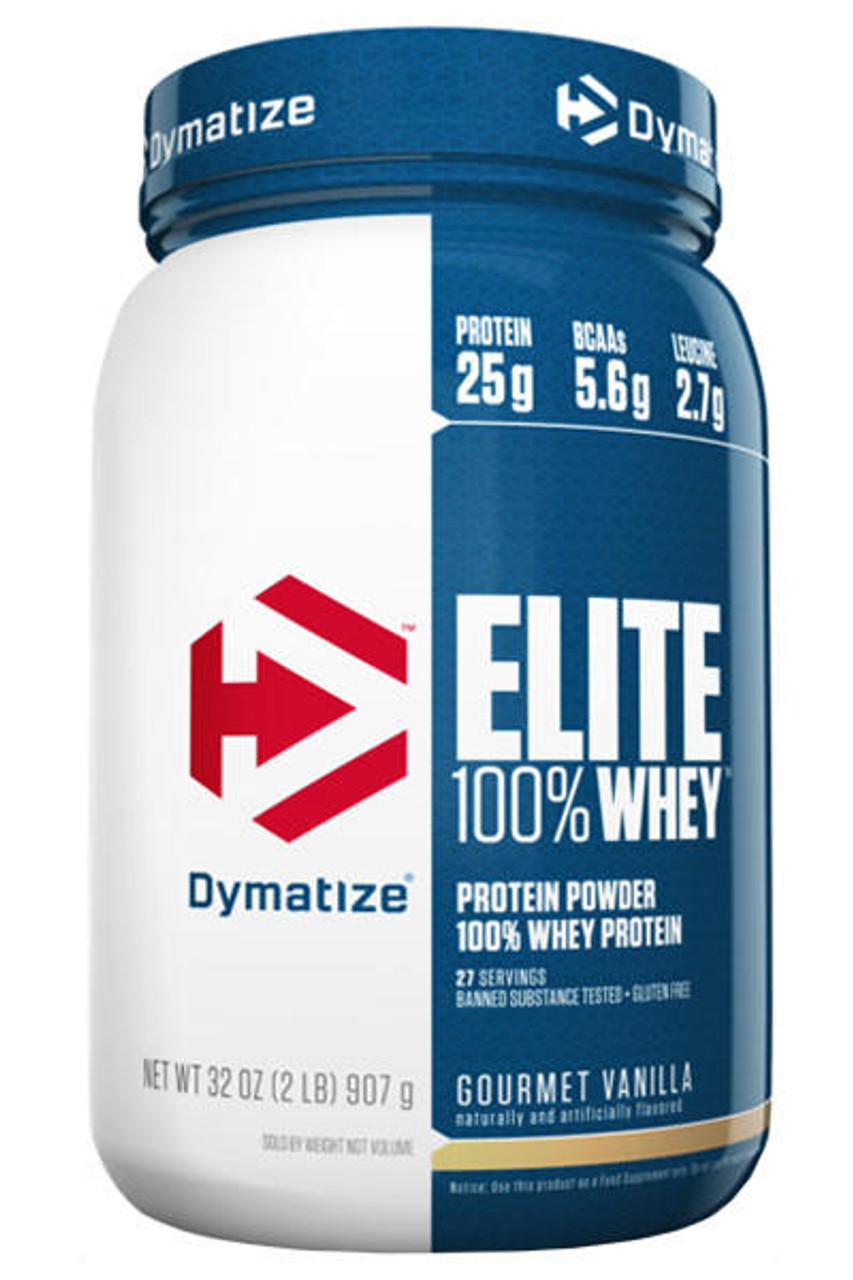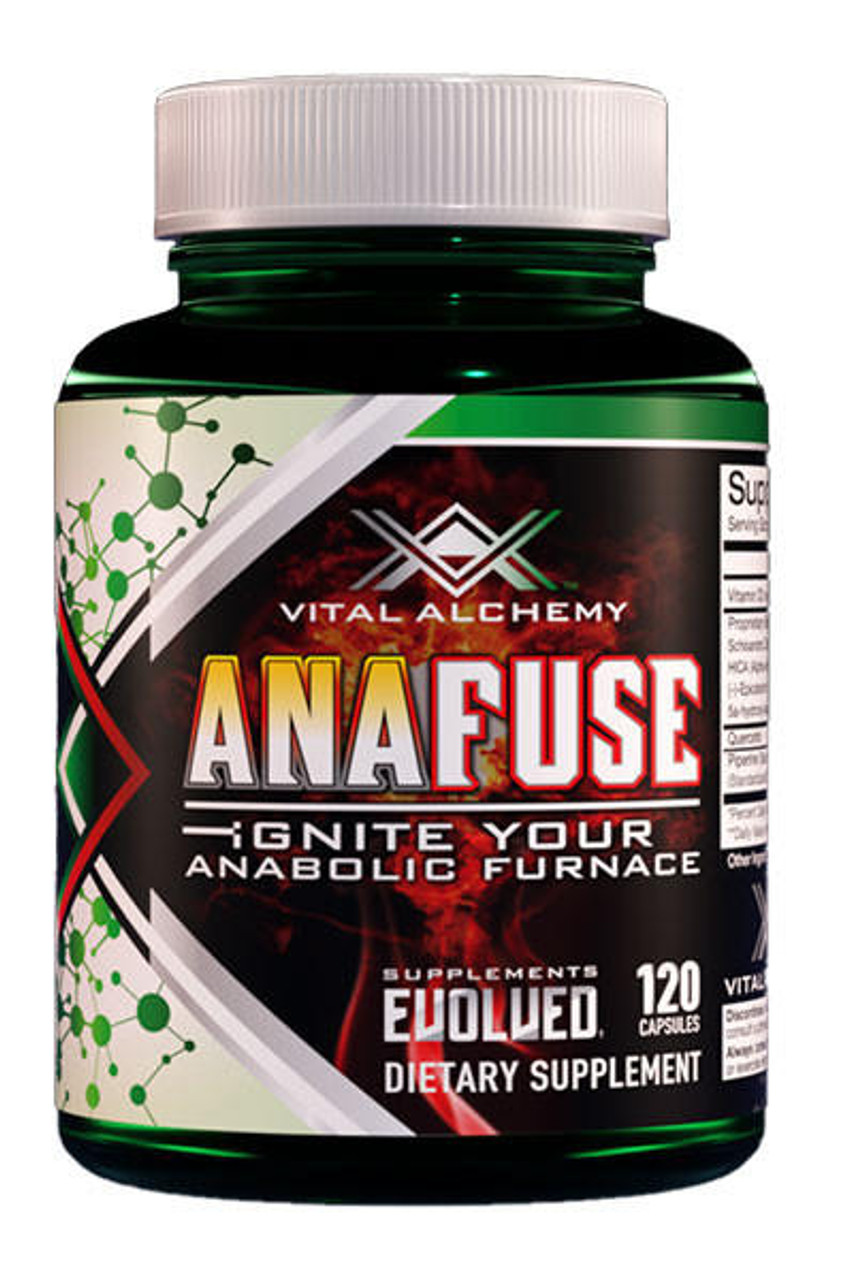How Much Protein Should I Eat to Gain Muscle
Posted by Leonard Shemtob on May 08, 2024
Building muscle is a common goal for many, but figuring out exactly how much protein you need can be a challenge. Protein is essential for muscle repair and growth, so getting enough is key to seeing results.
This article will explain the science of protein intake for muscle growth, offering you a clear understanding of how much protein you should aim for and how to include it in your diet.
By the end of this article, you'll have a clear understanding of how much protein you should be eating to support muscle gain, as well as some tips and strategies to help you incorporate more protein-rich foods into your diet.
Let's dive in and unlock the key to building the strong, lean physique you've been working towards!
[Related Article] Protein Powder vs. Pre-Workout: Which is Right for You?
Short Summary
- Understand the importance of protein as the fundamental building block for muscle repair and growth.
- Science: Exploring the science behind protein consumption and its impact on muscle building.
- The Perfect Amount: Determining the optimal amount of protein based on individual factors like activity level and fitness goals.
- Providing practical guidance on incorporating protein-rich foods into your diet.
- Empowering readers with the knowledge to maximize muscle gain through strategic protein consumption.
- Utilize our Protein Intake Calculator to accurately determine the perfect amount of protein you need based on your body composition, activity level, and fitness goals.
Why Is Protein Crucial for Muscle Growth?
Protein is essential for the growth and repair of muscles. During activities such as weightlifting or resistance training, tiny tears occur in our muscle fibers.
Protein steps in to mend these tears and facilitate the development of new muscle tissue, fostering both muscle growth and strength improvements.
Moreover, protein supplies amino acids, the essential building blocks crucial for muscle protein synthesis. This vital process involves the creation of new muscle proteins, promoting muscle growth and aiding in post-exercise recovery.
How Much Protein Should You Eat to Gain Muscle?
Determining the ideal amount of protein to consume for muscle gain can be a puzzle. A commonly used guideline suggests a range of 1.4-2.2 grams of protein per kilogram (or 0.6-1 grams per pound) of body weight per day for individuals actively building muscle.
However, individual protein needs can differ based on factors like age, gender, body composition, and activity level.
Activity Level: The more intense your workouts, the higher your protein needs. This is because more vigorous exercise creates greater muscle breakdown that needs repair.
Training Experience: Beginners might see muscle growth with a slightly lower protein intake compared to seasoned athletes whose bodies have adapted to training.
Dietary Goals: Are you trying to build muscle while also losing fat? In this case, you might need to be on the higher end of the recommended protein range.
If you're more active or trying to bulk up, you may benefit from slightly higher protein intake within the range of 1 to 1.2 grams per pound of body weight. On the other hand, if you're less active or trying to lose weight while preserving muscle mass, you might aim for the lower end of the spectrum.
It's also important to spread your protein intake evenly throughout the day, rather than loading up on protein in just one or two meals. This approach helps optimize muscle protein synthesis and ensures your muscles have a steady supply of amino acids for growth and repair.
Finding Your Personal Protein Sweet Spot
While a personalized protein calculator might seem ideal, these may not work for everyone. A better approach is to discuss your individual needs with a registered dietitian or qualified healthcare professional.
They can consider your specific factors and goals to recommend a protein intake that optimizes your muscle-building journey.
How Much Protein is Too Much?
We've talked about the importance of protein for building muscle, but can you have too much of a good thing? There is indeed a point where excess protein intake stops benefiting your muscles and might even cause harm.
While the exact upper limit can vary slightly depending on individual factors, most research shows exceeding 2 grams of protein per kilogram of body weight per day isn't recommended. Here's why:
Straining Your Kidneys: Your kidneys are responsible for filtering waste products from your blood. Consuming excessive protein puts extra strain on them, potentially impacting their long-term health.
Increased Weight: If you consistently exceed your protein needs, those extra calories can lead to unwanted weight gain, even fat gain.
Other Health Risks:
- Consuming very high levels of protein may lead to dehydration, as your body needs more water to flush out the byproducts of protein metabolism.
- Excessively high protein intake often means you're displacing other vital nutrients, like fats and carbohydrates, which play essential for energy production and overall health.
- Some studies suggest using very high protein might be associated with an increased risk of certain health problems like osteoporosis(weakening of bones).
However, while some studies suggest that high protein intake could pose health concerns, a 2020 study found no evidence linking high protein diets to increased risks for kidney or bone health.
Nonetheless, longer clinical trials are needed to fully assess the effects. Additionally, other studies have suggested that high protein intake is generally safe for healthy individuals.
Given the conflicting evidence, it's important to consult with your doctor or a healthcare professional to determine if a high-protein diet is safe and appropriate for you.
Best Sources of Protein
When it comes to getting your daily dose of protein, there are plenty of tasty options to choose from. Some excellent sources of protein include:
Animal Proteins Sources: (Complete proteins as they deliver all nine essential amino acids)
- Lean Meats: It includes Chicken breast, turkey breast, lean cuts of beef, and bison.
- Fish and Seafood (Salmon, tuna, cod, shrimp)
- Eggs:
- Eggs are a complete protein source, meaning they contain all the essential amino acids.
- Dairy (Greek yogurt, cottage cheese, and milk)
Plant-Based Proteins
- Beans and Legumes
- Tofu and Tempeh
- Nuts and Seeds
- Whole Grains
- Soy Products
Protein Consumption Tips
So you know how much protein you need and where to find it, but how can you optimize your protein intake for muscle growth? Here are some handy tips:
Spread protein consumption: Instead of consuming all your protein in one or two meals, try to spread it out evenly across your daily meals and snacks to improve muscle growth and recovery.
Prioritize quality sources: Opt for lean meats, fish, eggs, dairy, and plant-based proteins to ensure you're getting a variety of nutrients along with your protein.
Post-Workout Power: Aim for 20-30 grams of protein within 30 minutes to 2 hours after your workout. This window is prime for muscle protein synthesis, and a quick protein source like a shake or Greek yogurt can help maximize your gains.
Think Beyond Shakes: While protein shakes can be convenient, don't rely solely on them. Whole food sources offer additional benefits like fiber, vitamins, and minerals.
Drink Water: Drinking plenty of water can aid in the digestion and absorption of protein, as well as support overall muscle health.
Consider Protein Supplements: If you are struggling to meet your protein needs through whole foods alone, high-quality protein supplements can be a convenient way to improve your intake.
Other Factors for Muscle Growth
While protein is a superstar for muscle growth, it's not the only player on the team. Here are some other important factors to consider for optimal muscle building:
Resistance Training: Including regular strength training exercises into your routine is important for stimulating muscle growth and strength gains.
Adequate Calories: Consuming enough calories, particularly from nutritious sources, provides the energy your body needs to fuel muscle growth.
Rest and Recovery: Allowing your muscles time to rest and recover between workouts is vital for muscle repair and growth. Aim for adequate sleep and incorporate rest days into your training routine.
Hydration: Staying hydrated is essential for overall health and optimal muscle function, so be sure to drink enough water throughout the day.
Consistency: Consistently following a well-rounded exercise routine and healthy lifestyle habits is essential for long-term muscle growth and maintenance.
Protein supplements: Protein supplements can be convenient for boosting protein intake, especially for those with busy lifestyles or specific dietary needs.
Exploring Protein Supplements for Muscle Growth
1- Bio-Active Whey by iSatori
Bio-Active Whey by Isatori presents a novel approach to protein supplementation. It features a high-quality protein complex comprising concentrate, isolate, and hydrolysate, augmented with BIO-GRO Active Peptides.
This advanced formula offers unique benefits that set it apart from conventional proteins. The Bio-Active Peptides play a role in enhancing strength, accelerating muscle growth, and promoting lean muscle mass and recovery.
Furthermore, Bio-Active Whey supports the repair of damaged muscle tissue and aids in adapting to resistance training for improved muscle power. Studies have indicated that BIO-GRO, found in Bio-Active Whey, may enhance strength in users over an 8-week period.
Key Benefits
- This supplement delivers 25 grams of protein per serving.
- It helps you build muscle.
- It accelerates your muscle recovery.
- It helps improve strength.
Customer Reviews: Bio-Active Whey by iSatori
 Great product!
Great product!
"Its great tasting, super easy to digest, no bloating, easy to mix, and a great formula! Ive been recommending it to all my friends, thanks!"
-JC
2- ProWheyMax by Performax Labs
ProWheyMax by Performax Labs offers a protein powder containing 24 grams of protein per scoop. This premium whey protein supplement is formulated to aid in muscle growth and recovery.
It features high-quality cross-flow micro-filtrated whey protein concentrate (WPC80) and whey protein isolate (WPI90), providing essential amino acids necessary for muscle repair and growth.
Key Benefits
- It improves muscle growth.
- It speeds up muscle recovery.
- It stimulates muscle protein synthesis.
- It boosts your exercise performance.
- It improves your digestion and absorption.
Key Ingredients
- Cross Flow Micro-filtrated Whey Protein Concentrate (WPC80)
- Whey Protein Isolate (WPI90)
- Velositol
- DigeZyme
3- Iso 100 by Dymatize Nutrition
Achieving a lean and strong physique involves supporting muscle protein synthesis and managing caloric intake effectively. ISO100 HYDROLYZED, a premium blend from Dymatize, addresses these needs without excess calories.
ISO100 HYDROLYZED represents a premium blend of hydrolyzed whey protein isolate and whey protein isolate – the pinnacle of DYMATIZE's formulations. Through enzymatic hydrolysis, whey protein undergoes partial breakdown into amino acid chains, facilitating easy digestion.
ISO100 HYDROLYZED is suitable for consumption both post-workout and before intense exercise sessions. With no added sugar or fat, it contains less than 116 kcal per serving when mixed with water.
Key Benefits
- This formula delivers 25 grams of pure whey protein.
- It is free from lactose and fat.
- It supports your absorption.
- It boosts muscle protein synthesis.
- It can be a perfect post-workout recovery shake.
Customer Reviews: Iso 100 by Dymatize Nutrition
 Smooth and good for any occasion.
Smooth and good for any occasion.
"So I have tried some of the different proteins on this site over time. While I do like some of the other ones, I do have to say that ISO 100 is probably one of the SMOOTHEST tasting and digesting proteins I have every tried. I do like to take it between meals if I feel my stomach is starting to get "hungry" or "needing something".
Getting it to break for smoothness is not an issue either. Its breaks up and mixes very easily. I can not recall a time there was any small chunks that did not break from the shaking and mixing of it.
If you are looking for something that is promised to taste good and break up easily, this is the protein to go to."
-Dempsey
 Solid overall
Solid overall
"I gave this 4 stars because it is a little pricey. Besides that its great. Mixes easy, tastes good, 0g fat and 1 g carbs!"
-clay m.
4- Elite 100% Whey by Dymatize
Elite by Dymatize Nutrition provides essential fuel for your muscles both pre and post-intensive workouts. Elite 100% Whey is composed of whey protein concentrates, isolates, and hydrolyzed whey protein, ensuring rapid release, high biological value, and a rich source of branched-chain amino acids.
Notably, this protein powder not only delivers nutrition but also offers a palatable taste. Moreover, like all products from Dymatize Nutrition, Elite 100% Whey undergoes banned substance testing by "Informed-Choice," providing athletes with added assurance.
Key Benefits
- This supplement contains Branched Chain Amino Acids (BCAAs)
- It provides low calories.
- It helps you build muscle.
- It enhances muscle recovery.
- It boosts your daily protein intake.
- It offers a complete amino acid profile.
- It has a great taste.
- This high-quality protein supplement increases your muscle protein synthesis.
Honorable Mention: AnaFuse by Vital Alchemy (Muscle-Building Supplement)
Introducing Anafuse by Vital Alchemy: A Muscle-Building Breakthrough! Anafuse combines newly discovered anabolics in a seamless blend, creating a synergy that maximizes muscle-building capabilities without the undesirable side effects often associated with similar supplements.
Anafuse offers a comprehensive solution for adding lean muscle mass to your physique, all within a single formula.
Key Benefits
- It enhances your mass gains.
- It reduces your body fat.
- It boosts muscle endurance.
- It improves muscle hardness.
- It increases strength.
- It speeds up your muscle recovery.
- It enhances your protein synthesis.
Key Ingredients
- Epicatechin
- Ajuga Turkestanica
- HICA
- Eriobotrya Japonica
- Vitamin D3
- Quercetin
Customer Reviews: AnaFuse by Vital Alchemy
 Excellent product
Excellent product
"I have been taking this for a week now and have already seen an increase in size without any water weight. My workouts have been more intense as i am finding it harder to wear myself out."
-Brandon A.
 Excellent
Excellent
"Provides the ability to progress faster. "
-Scott C.
 Great results
Great results
"This product produces excellent results, that you’ll quickly notice within weeks. My focus and strength are doubled while I’m on this product!"
-Micah H.
FAQs: How Much Protein Should I Eat to Gain Muscle
Q: How much protein do I ACTUALLY need to build muscle?
A: There's no one-size-fits-all answer, but a commonly used guideline suggests a range of 1.2-1.7 grams of protein per kilogram (0.5-0.8 grams per pound) of body weight per day for individuals actively building muscle.
Q: Can I eat too much protein?
A: While protein is essential, exceeding your body's needs isn't beneficial and might put a strain on your kidneys. Most experts suggest staying below 2 grams of protein per kg (0.9 grams per pound) of body weight per day.
Q: Are protein supplements necessary for muscle growth?
A: While it's possible to meet your protein needs through whole foods alone, protein supplements can be a convenient way to ensure you're getting enough protein.
Q: What are the signs that you aren’t getting enough protein?
A: If you're not consuming enough protein, you may experience signs such as muscle loss, slow recovery from workouts, frequent illness, hair loss, and difficulty building or maintaining muscle mass.
Q: Is it better to eat protein before or after a workout?
A: Both timing options can be beneficial. Consuming protein before a workout provides your muscles with amino acids for energy and can help prevent muscle breakdown during exercise. Consuming protein after a workout provides your muscles with the necessary nutrients to repair and rebuild, supporting muscle growth and recovery.
Q: How long will it take to see results from building muscle?
A: Muscle building takes time and dedication. Be patient, and consistent with your workouts and diet, and you'll gradually see progress.
Conclusion
In conclusion, protein is a key player in the game of muscle growth. By understanding the importance of protein intake, determining the optimal amount for your needs, and incorporating high-quality protein sources, you can maximize your muscle-building efforts.
Additionally, considering factors like timing of protein intake, rest and recovery, and consistency in training can further enhance your muscle growth efforts.
While a protein supplement can be a convenient option for you, it should be complemented with a balanced diet and exercise routine to maximize effectiveness.
Remember, muscle growth is a slow process that needs dedication, adequate nutrition, and a well-rounded approach to training.
By following these strategies and staying committed to your fitness journey, you can reach your desired muscle growth and strength goals.
Sources:
https://www.onepeloton.com/blog/how-much-protein-s...
https://pubmed.ncbi.nlm.nih.gov/23899756
https://www.health.com/how-much-protein-to-build-muscle-8557677
https://www.healthline.com/health-news/how-much-protein-per-day-build-muscle
https://www.medicalnewstoday.com/articles/how-much-protein-do-you-need-to-build-muscle
https://www.strongsupplementshop.com/protein-intake-calculator
Written and Sponsored by Leonard Shemtob
Leonard Shemtob is President of Strong Supplements and a published author. Leonard has been in the supplement space for over 20 years, specializing in fitness supplements and nutrition. Leonard appears on many podcasts, written over 100 articles about supplements and has studied nutrition, supplementation and bodybuilding.
Leonard's articles have been published in many top publications around the web. Leonard enjoys weight training, playing basketball and yoga, and also enjoys hiking. In his free time he studies and works on improving himself. For more detailed information, visit his official blog.

